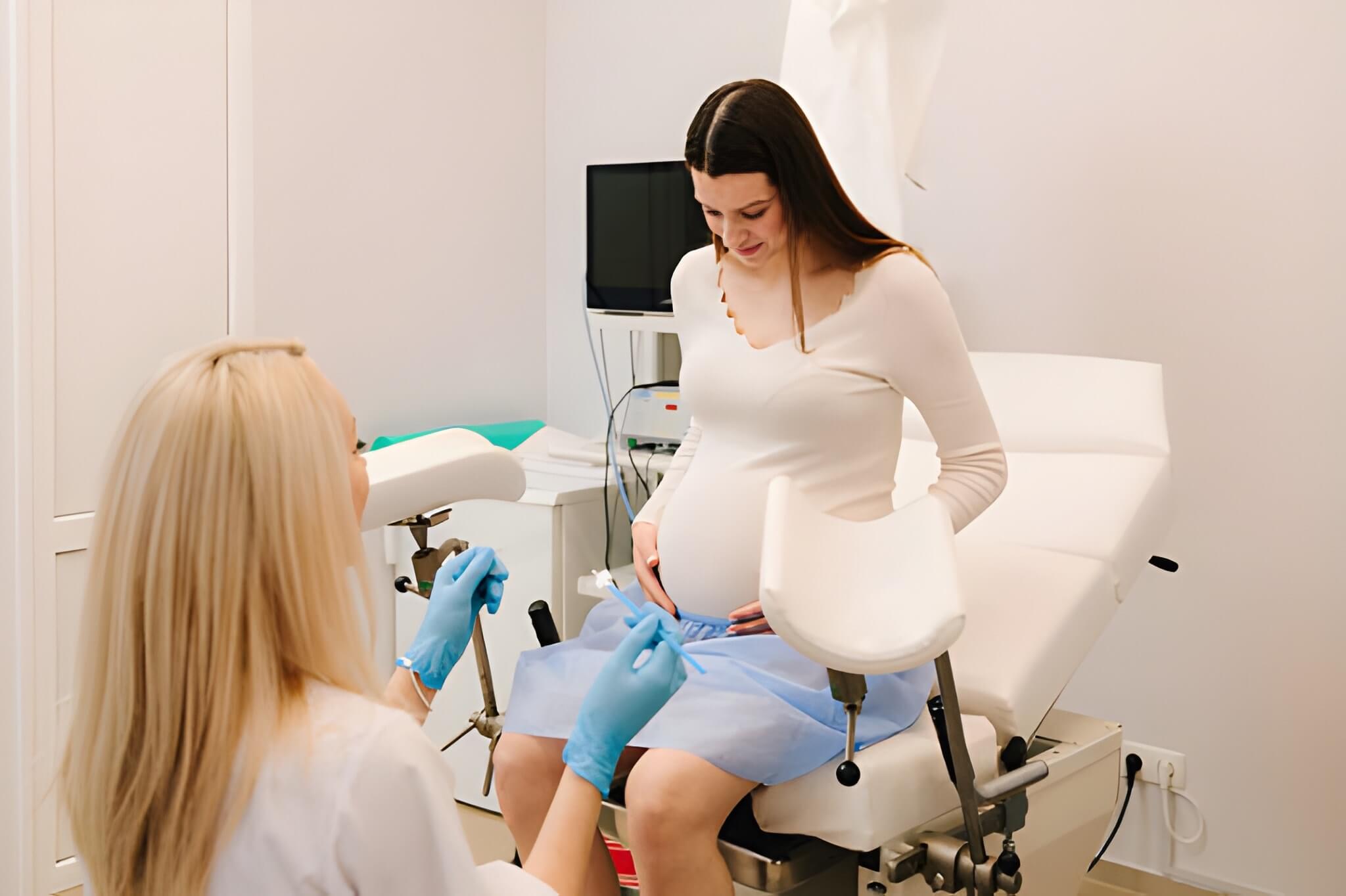Medically Reviewed by Dr. Meghan Killilea Galli — HealthGardeners
If you’ve recently had a Pap smear and noticed some spotting or bleeding afterward, you’re not alone. Many women in Hartford, CT ask their providers: “Is it normal to bleed after a Pap smear test?” The answer is usually yes — mild bleeding or Pap smear spotting after the exam can be normal. Still, it’s important to understand why it happens, when it’s a concern, and what it means for your overall health.
As a Family Nurse Practitioner specializing in women’s health, I’ll explain what you should expect after a Pap smear, including guidance for women who are pregnant, and when to call your provider.
What Is a Pap Smear?
A Pap smear (also called a Pap test) is a preventive screening that looks for changes in the cells of your cervix. It helps detect:
-
Precancerous changes (dysplasia)
-
Cervical cancer
-
Certain infections or inflammation
It does not detect pregnancy — a common question is: “Can a Pap smear detect pregnancy?” The answer is no. A Pap test cannot confirm pregnancy, though providers may sometimes notice changes in cervical cells that suggest pregnancy. For pregnancy testing, a urine or blood test is required.
Is It Normal to Bleed After a Pap Smear?
Yes. Light bleeding or spotting is common after a Pap test. During the exam, a small brush or spatula collects cells from your cervix. Because the cervix is sensitive and contains many small blood vessels, this gentle scraping can cause temporary irritation.
Common experiences include:
-
Spot bleeding after Pap smear (a few drops or light pink discharge)
-
Mild cramping or discomfort similar to period cramps
-
Light spotting for 1–2 days
This is normal and usually resolves on its own.
Why Does Bleeding After a Pap Smear Happen?
Several reasons can explain bleeding after a Pap exam:
-
Cervical Sensitivity
-
The cervix has delicate blood vessels that can bleed when touched.
-
-
Hormonal Factors
-
If you’re close to your period or on certain birth control methods, the cervix may be more prone to bleeding.
-
-
Infections or Inflammation
-
Conditions like cervicitis (inflammation) can make bleeding more likely.
-
-
Pregnancy
-
Can you get a Pap smear while pregnant? Yes, it’s safe and recommended. However, the cervix is more sensitive during pregnancy, so spotting is more common.
-
Pap Smear During Pregnancy
Many Hartford women ask: “Can you have a Pap smear while pregnant?” The answer is yes. Pap smears are safe during pregnancy and do not cause miscarriage.
Key points:
-
Pap smear while pregnant may cause slightly more spotting.
-
Pap test while pregnant is often done at the first prenatal visit if you are due.
-
Can a Pap smear cause a miscarriage in early pregnancy? No. Pap smears do not increase miscarriage risk.
When Is Bleeding After a Pap Smear Not Normal?
Most spotting is harmless, but call your Hartford provider if you notice:
-
Heavy bleeding after Pap smear (like a period or heavier)
-
Bleeding lasting more than 2–3 days
-
Severe pain after Pap
-
Foul-smelling discharge or fever (could indicate infection)
These symptoms may require further evaluation.
What Happens at a Pap Smear Appointment?
If you’re wondering, “What does a Pap smear consist of?”, here’s what to expect:
-
You’ll lie on the exam table with your feet in stirrups.
-
A speculum is gently inserted into the vagina.
-
The provider swabs the cervix to collect cells.
-
The sample is sent to the lab for testing.
The exam takes only a few minutes. Some women feel crampy after Pap smear tests, but symptoms are usually mild.
What About Pain After Pap Smear?
Mild crampy after Pap smear feelings are normal. Over-the-counter pain relievers, hydration, and rest usually help. If pain is severe or ongoing, consult your provider.
FAQs About Pap Smears and Spotting
1. Is spotting normal after a Pap smear?
Yes, light bleeding or pink discharge for 1–2 days is common.
2. Can a Pap smear test detect pregnancy?
No, Pap smears cannot detect pregnancy. Only urine or blood tests can.
3. Is it normal to bleed after a cervical smear if I’m pregnant?
Yes. The cervix is more sensitive during pregnancy, but Pap smears remain safe.
4. Can you have a Pap smear while pregnant?
Yes, Pap smears are safe and part of routine prenatal care if due.
5. What should I do if I have heavy bleeding after Pap?
Call your healthcare provider right away. Heavy or prolonged bleeding is not normal.
Hartford Resources for Women’s Health
If you live in Hartford, you have access to excellent preventive care services. Local providers offering Pap smears include:
-
Saint Francis Hospital Women’s Center
-
UConn Health Women’s Specialty Clinics
These centers provide Pap tests, well woman exams, and full preventive care for women at every stage of life.
Final Thoughts
So, is it normal to bleed after a Pap smear? Yes — mild spotting or light bleeding after a Pap test is common and usually harmless. However, heavy bleeding after Pap smear, severe pain, or unusual discharge should prompt a call to your provider.
For Hartford women, regular Pap smears are an essential part of preventive care. Whether you’re due for your first Pap test, navigating pregnancy, or managing ongoing health needs, an annual visit keeps you on track for long-term wellness.
At HealthGardeners, I’m committed to helping Hartford women understand their health and feel confident in every step of care.
Disclaimer: This is informational content, not a substitute for professional medical advice.
“Learn more about local health tips in Hartford at Hartford Health.”

Meghan Killilea Galli, APRN, FNP-BC, is a Connecticut-based board-certified Family Nurse Practitioner with over 5 years of experience in urology, women’s pelvic health, and primary care. She practices with Hartford HealthCare and Griffin Faculty Practice Plan and founded Health Gardeners to share reliable, evidence-based health information.
Read More
